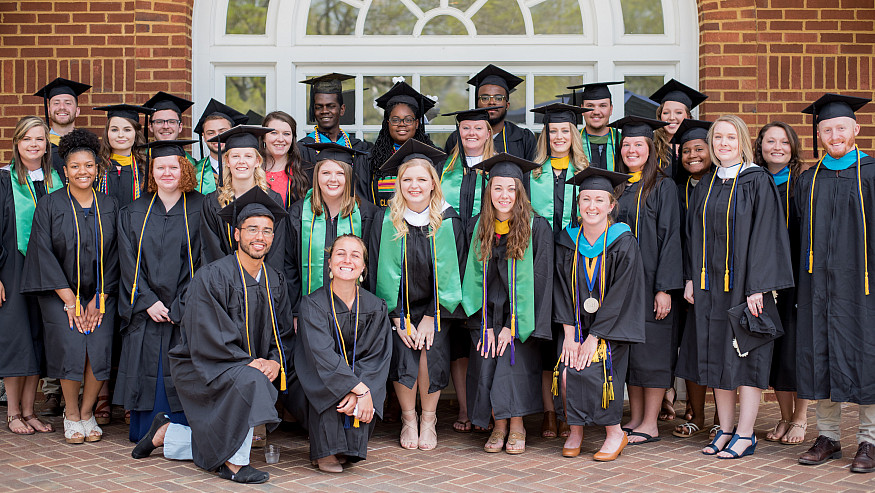
Special Ceremonies
As we approach one of our most cherished moments of the academic year, commencement, we also celebrate our student achievements in hosting the Diversity & Inclusion Year-End Ceremonies.
These celebrations occur at many colleges and universities across the nation and recognize both academic and personal excellence within these communities. Student leaders have strongly advocated for such ceremonies on our campus. Please note, that these ceremonies are intended to complement commencement. These ceremonies will honor groups who have been historically underrepresented within higher education.
Check the 2023 event listing for more details
Asian Ceremony
The Asian Ceremony is a celebration created by Emory & Henry College to celebrate students of Asian descent. During the ceremony, a representative from each student’s family and/or friends will present the graduate with a floral stole.
Appalachian Ceremony
The Appalachian Ceremony is a celebration created by Emory & Henry College to celebrate the achievements of Appalachian students who were born/raised in Appalachia, and/or identify as Appalachian. During the ceremony, a representative from each student’s family and/or friends will present the graduate with a white stole.
First Generation Ceremony
The Generation Ceremony is a celebration created by Emory & Henry College to celebrate the achievements of students who are the first to graduate in their families. During the ceremony, a representative from each student’s family and/or friends will present the graduate with blue & gold graduation cords.
The Global Scholars Ceremony
The Global Scholars Ceremony is a celebration created by Emory & Henry College to celebrate the achievements of international students and students who have completed study abroad work and who are graduating. During the ceremony, a representative from each student’s family and/or friends will present the graduate with an international stole featuring the flag of the student’s nation.
The Lavender Ceremony
Lavender Ceremonies are annual ceremonies conducted on numerous campuses to honor lesbian, gay, bisexual, queer, and transgender students, and to acknowledge their achievements and contributions to the College. The Lavender Ceremony was created in 1995 by Dr. Ronni Sanlo, a Jewish Lesbian, who was denied the opportunity to attend the graduations of her biological children because of her sexual orientation. Lavender is important to LGBTQ history. It is a combination of the pink triangle that gay men were forced to wear in concentration camps and the black triangle designating lesbians as political prisoners in Nazi Germany. The LGBTQ civil rights movement took these symbols of hatred and combined them to make symbols and a color of pride for the community. During the ceremony, a representative for each student’s family and/or friends will present the graduate with a lavender stole.
The Raza Ceremony
The Raza Ceremony was originally created by LatinX students, staff, and faculty at the University of California - Los Angeles (UCLA) in 1973. It was a proactive strategy to restore pride, heritage, and sense of purpose to LatinX students, and give them the opportunity to students to publicly thank individuals who have helped them throughout their educational careers. The Raza Ceremony is celebrated at colleges and universities throughout the nation. During the ceremony, a representative for each student’s family and/or friends will present the graduate with a serape stole.
Donning of the Kente
The kente cloth originated in 12th century West Africa in the country of Ghana when royalty and important figures in Ghanaian society donned the brilliantly colored material during ceremonial events and special occasions. Today, it represents graduates’ pride in their African American heritage, honors their communal struggles and success, and celebrates their academic and personal accomplishments. During the ceremony, a representative from each student’s family and/or friends will present the graduate with a kente cloth stole.